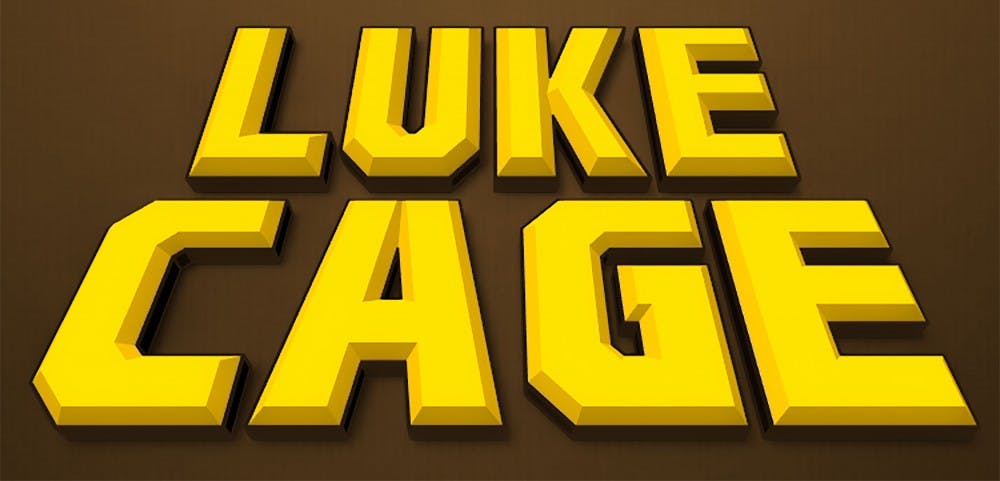Marvel knocked it out of the park yet again with “Luke Cage.” The series took all the elements that worked in “Daredevil” and “Jessica Jones,” and amped them up.
The series is based off the comic book of the same name and takes inspiration from filmmaking of the '70s. “Luke Cage” prides itself on being a mostly African-American cast with over-the-top acting, questions of power struggle between gangsters, the police and citizens caught in the middle of it all and messages of remaining vigilant and diligent.
In 2013, Disney and Marvel announced a television cinematic universe based on four characters, who would eventually team up. A deal was struck with Netflix that each character would have their own individual series, with each season having 13 episodes. Later, the characters would all be featured in the crossover series, “The Defenders.”
“Daredevil” was the first series launched in April of 2015, and Marvel made the bold choice of fabricating it into a crime drama taking place in Hell's Kitchen, New York. “Daredevil” was critically acclaimed and showed that Marvel is not just a production company that makes bright, colorful movies like “Iron Man” or “Captain America.”
“Daredevil” was dark, gritty, incredibly violent and surprisingly coherent in its narrative. There was a lot of confidence in what Marvel was doing, and a lot of people wondered if it was just going to be a one-hit wonder.
“Jessica Jones” came out with the same approach. Like “Daredevil,” it was shot in real-world Hell's Kitchen, New York. It circled around the character Jessica Jones, a private investigator dealing with alcoholism who was trying to get away from the mind-controlling powers of villain Kilgrave. Again, it was critically acclaimed and it boasted that gritty tone needed to show the dirty street-level of Hell's Kitchen. In this series, a new character was introduced: Luke Cage. Cage was a boyfriend of Jones. Unfortunately, things did not work out between the couple and halfway through Season 1 of “Jessica Jones,” he moved to Harlem, New York.
Mike Coulter reprises his role as the titular hero, and at first, he does not want to be the hero that everyone wants him to be. Cage is the result of a scientific experiment he went through in prison and he sees it as a burden rather than a gift. There is a lot of pain in his eyes, but also a code of ethics. Cage comes off as a wide-eyed golden boy, and he is often made fun of for it. This is good juxtaposition because seems he is almost unaware of the malicious and violent activity around him. People do not take him seriously, and they learn the hard way that they should.
The main conflict of the show stems from the mob led by Cottonmouth, played by Mahershalalhashbaz “Mahershala” Ali. His character and his philosophy take after the main villain of “Daredevil,” Kingpin. Both characters see that their horrible convictions are actually saving graces New York City needs after the cataclysmic events of “The Avengers.” What is different is that Cottonmouth is not shrouded in mystery like Kingpin was, nor does he want to be. Cottonmouth wants people to know they cannot mess with him.
But after an arms deal of his goes awry and a character close to Cage dies, Cage takes it upon himself to shut down facilities and warehouses that Cottonmouth owns, making his life more and more difficult.
Just like in “Daredevil,” the action is top notch and, wisely, secondary to the drama. There is a lot of story to get through before punches are thrown and guns are fired. But, it is extremely satisfying when it does happen. The action is complimented by the brilliant soundtrack of jazz, gangster rap and sometimes just a basic drum beat. It gives “Luke Cage” a nice ebb and flow that audiences can groove to.
In the series' stand-out moment, Cage locates one of Cottonmouth's warehouses, rips off a car door and uses it as a battering ram as several of Cottonmouth's henchmen waste their bullets on the bulletproof behemoth, with Wu Tang Clan's “Bring Da Ruckus” blasting in the background.
Moments like this prove that Marvel's best arena is Netflix. Its films are good, but they are often limited with a PG-13 rating. The movies have a different goal to achieve: set up a larger universe and appeal to several demographics.
With Netflix, however, the goal is to tell a grounded story. Naturally, this leads to a violent environment.
In cities like Hell's Kitchen and Harlem, it would be cheap to scurry away from being realistic. These are street-level characters, and the characters need to be reflected by those streets. Comic book shows like “Arrow” and “Gotham” have the unfortunate downside of being aired on broadcast television, and the shows are having a tough time grabbing audiences because of this. It is surprising that more and more studios are not using Netflix to their advantage. “Daredevil,” “Jessica Jones” and “Luke Cage” are some of the best comic book adaptations out there for this reason.
“Luke Cage” has been released at a very suspicious time considering our current political culture. The series explores corruption and how even though you might have every element of law enforcement in your pocket, it only takes a quiet, affable hair-sweeper working at a local barber shop to mess up your day.



The Slate welcomes thoughtful discussion on all of our stories, but please keep comments civil and on-topic. Read our full guidelines here.